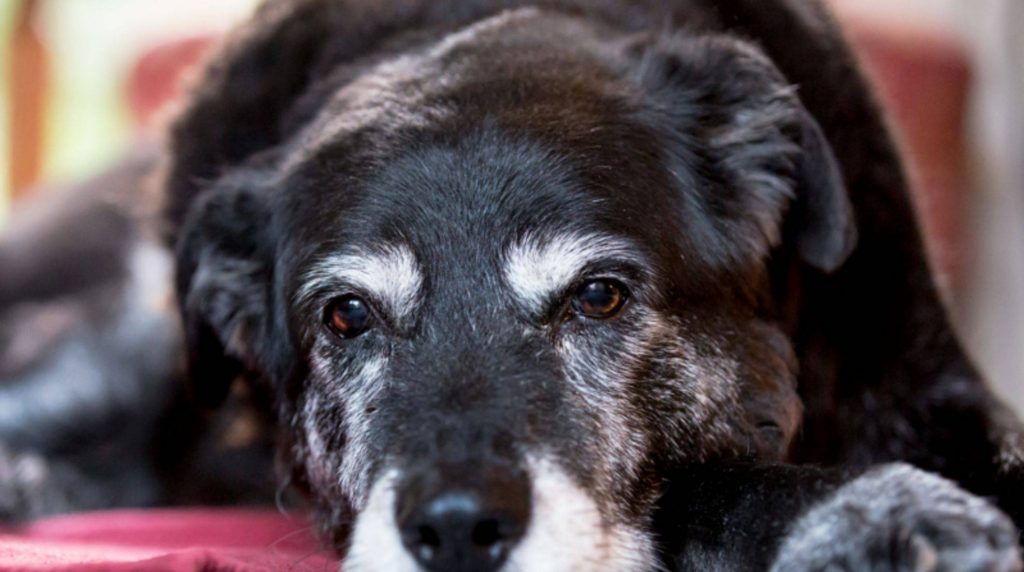It is unavoidable: Not only do humans grow old, but old dogs are also an inevitable part of the cycle of nature. The aging process is not in the eye of the beholder – there are clear signs when your four-legged friend is getting old. Here, you can read which signals you should pay attention to, the consequences, and how you can enjoy your aging companion for as long as possible.

Of course, the years have left their mark on her four-legged friend. Old dogs can no longer go full throttle, become weaker overall, and have to accept limitations. Nevertheless, it is perfectly possible to get something going even in old age with a cold muzzle. First of all, you should realize that your dog is of a generation that qualifies him for retirement.
Signs when your dog is getting old
Even in four-legged friends, aging is a gradual process that never happens overnight. But there comes the point when you notice clear signs. For example, your dog takes more time, takes extra breaks, and naps more than it used to. As a result, muscles are broken down, and it may well be that your companion puts on a few love handles. On the outside, gray hair indicates advancing age, just like in humans.
In addition, your dog may be unable to concentrate and hear, smell and see less. The sense of taste also decreases; old dogs often do not eat as well as they used to. Tartar and worn joints bring further limitations – your best friend is old and can now be called a senior.
Consequences of aging that affect your dog
Unlike you, your four-legged friend has to directly deal with the consequences mentioned. Declining sensory perception restricts, the joints hurt, the bladder squeezes or can no longer be controlled as usual, and the declining ability to concentrate makes it challenging to deal with new experiences. Perhaps your dog is also declining in hygiene or will develop dementia. Accordingly, he demands more care from you, more attention, and more will to continue to challenge and care for him. Especially when old dogs can no longer frolic and participate as they used to: It is now up to you to compensate for this with an optimal all-round package.
What can you do when your dog gets old?
Your dog gets old, pushes a calmer ball, and can no longer move like it used to. This means that the energy supplied via the dog food must also be reduced. There are special senior feeds for older dogs with less power but still, have all the essential nutrients. Besides food, there are other things you can do when your four-legged friend gets old.
Keep them physically and mentally occupied with things like their favorite toys and activities. Keep going for walks, whether for running, splashing, or spending time with familiar or new four-legged friends. The last social contacts are highly beneficial for the dog, especially in old age. Provide more warmth when your companion grows old. Especially when lying on the floor, it must not be too cold or even damp. Give your dog the rest it needs and protect it from unnecessary stress. To do this, stick to previous rituals and routines, such as eating and walking.
Young to old – calculation in human years
The following applies to young and old dogs: The rule of thumb that one dog year corresponds to seven human years is hardly meaningful. A lot happens with your four-legged friend in the first twelve months, and the teenage years rush by. The aging process then takes much longer. In addition, the size of the dog is significant.
Here are three calculation models for young and old dogs that approximate better:
Small dogs up to 15 kilos:
● 12 months equals 17 to 19 human years
● Five years: 33 to 38 human years
● Ten years: 60 to 65 human years
● 15 years: 85 to 90 human years
Medium-sized dogs around 25 kilos:
● 12 months equals 15 to 16 human years
● Five years: 40 to 45 human years
● Ten years: 65 to 75 human years
● 15 years: about 100 human years
Large dogs over 40 kg:
● 12 months equals 14 to 15 human years
● Five years: 45 to 50 human years
● Ten years: 75 to 85 human years
● 15 years: Methuselah and very rare









